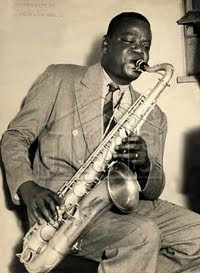Rare Music of Ernesto Nazareth
Ernesto Júlio Nazareth (1863 - 1934) was born in Rio de Janeiro and learned to play the piano as a child with his mother. After her passing away in 1873, Ernesto continued his piano studies and began composing. His first piece, the polka "Você Bem Sabe" was written and published when he was just 14 years of age. He had and open ear for the popular music beeing played in the streets and favoured by choro musicians, his own works for piano were influenced by maxixe, lundu, habañera and choro. Nonetheless, as a classical musician he would not allow such popular denominations into his own music, instead he would classify his pieces as i.e. 'Brazilian tangos'. - Nazareth worked as a pianist at the prestigious movie theater Odeon of Rio de Jainero, where he wrote one of his most famous compositions, "Odeon". Many musicians would go to the Odeon theater just to see and hear Nazareth play. Later he got a job at a music shop to support his living and growing family, there he was hired to play the sheets asked for by customers. Among the music sheets were his own compositions and according to some sources he was very demanding towards people, who themselves would try to play his pieces, frequently telling the possible buyer to interrupt the performance! - By the late 1920'ies Nazareth began facing hearing problems that worsened towards the end of his life. A depression following the passing away of his daughter and wife intesified the decay of his mental health - he was hospitalizied in 1933 and died the following year. - Ernesto Nazareth left a legacy of compositions favoured by both classical and popular musicians. His first composition labeled 'choro' is "Apanhei-te Cavaquinho", other well-known pieces are "Brejeiro", "Ameno Resedá", "Bambino", "Dengoso", "Travesso", "Fon Fon" and "Tenebroso". Nazareth's popular works remain a core repertoire of Brazilian choro, performed by numerous artists in various settings to this day. His extensive work is composed of more than 200 pieces, however, many of his compositions have only recently been saved from oblivion and made accessible for the public thanks to the extensive research by Brazilian pianist Alexandre Dias.
Alexandre Dias (b 1984) initiated his classical piano training at the age of 10, and pursues a career as a concertist and researcher. Since 1999 he has been researching the works and discography of Ernesto Nazareth.In 2007 he recorded his first CD containing rare music by Nazareth, available here, and in 2009 he was the first to review Nazareth's complete scores, which are now available for free here. - As a major force and contributor to the celebration of the 150 years of Ernesto Nazareth in 2013, Alexandre Dias produced and coordinates the excellent resource website devoted to Nazareth hosted at Instituto Moreira Salles. - From 2007 the Sovaco de Cobra website published a series of articles with the headline Raras de Ernesto Nazareth by Alexandre Dias reviewing rare compositions by Nazareth and accompanied by soundfiles demonstrating Dias'marvellous pianistic interpretation of the discussed scores. The recorded piano pieces were later uploaded for free download at the Piano Society website, but are no longer avaiable from this web. Instead you may purchase an extended issue of this material as mp3 files here, or as regular 5 CD albums, here.
The 5 CDs contain 67 tracks of rare compositions by Ernesto Nazareth, many of them recorded for the first time here. The interpretations of the music are exellently performed by Alexandre Dias, the CDs should be available in your collection of recordings devoted to choro and related music, if you decide to listen to the best contemporary piano interpretation of Ernesto Nazareth. - Alexandre Dias continues his extensive research of Nazareth, recently he has found and recorded a Nazareth polca titled 'Nazareth' - to end this, here's Alexandre's version of this piece originally dedicated to Nazareth's wife - enjoy!
---
Jo






1 Comments:
Thanks Jo for pointing us to this great series of rare compositions.
Hans
Post a Comment
<< Home